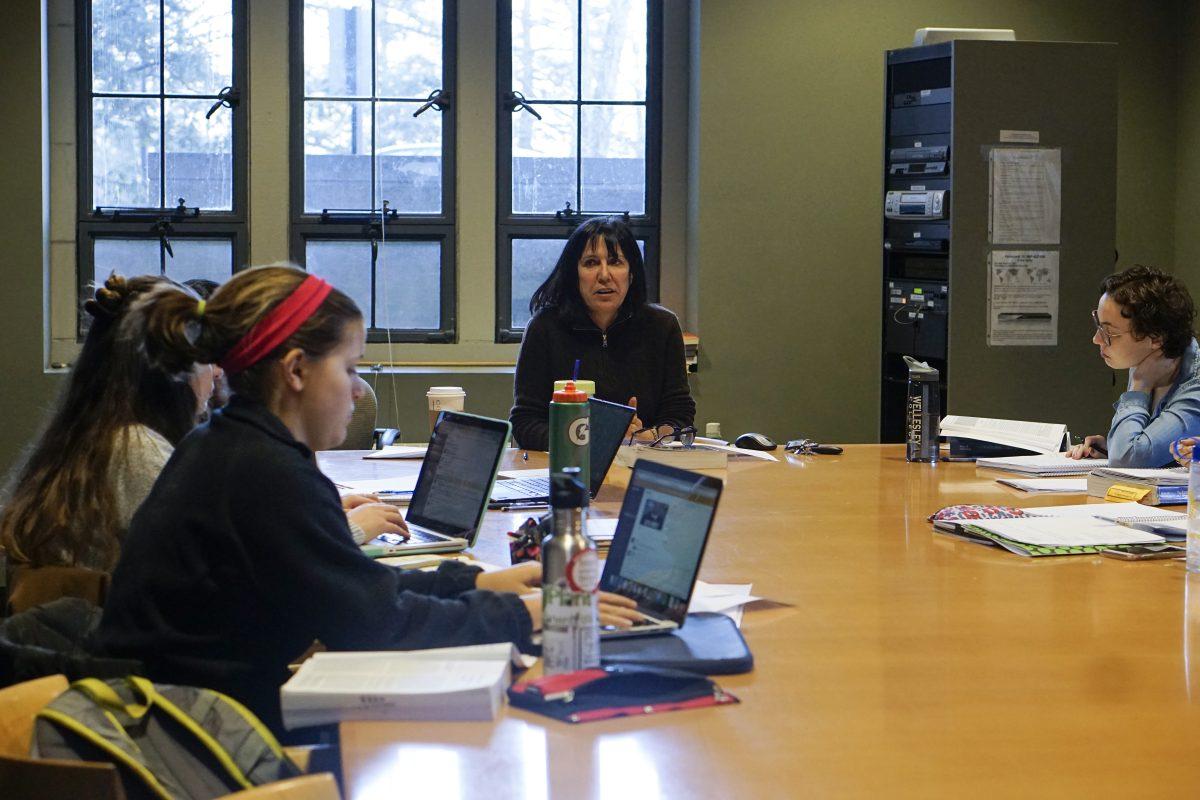Defined by their high level of detail, substantial reading load and lengthy final papers, 300-level seminars are not for the faint of heart. Viewed as the capstone to the Wellesley academic experience, these courses previously required a certain amount of prerequisites. In recent years, this has changed and now there are more first years in such seminars than in years past. While this can be beneficial for students who want to dive right into an academic subject, it is not without its risks. A 300-level seminar requires a certain level of academic maturity that is only gained by taking college courses and partaking in academic discussion and discourse at Wellesley.
In the political science department, students of all years are required to apply for 300-level seminars. By contrast, students simply register for seminars in other departments which sometimes requires getting instructor permission or meeting a series of prerequisites. In my first year, I applied and was accepted to a 300-level seminar. At the time, I was interested in pursuing political science, and having met the prerequisite by taking AP U.S. Government and Politics, I wanted to dive right into the field. I ended up not taking the course due to circumstances outside of my control, but in retrospect, I know that I was not adequately prepared for the class. The application process for the seminars is a model that should be followed in all courses. At the very least, instructor permission should be required to ensure that students have an adequate background to meet the demands of the course.
I took my first 300-level seminar in my sophomore fall in my major department, history. Prior to registering for the class, I emailed the professor to see if I would be eligible for the class given that I was not a junior or senior. As a result of taking two 200-level classes in the department, I was permitted to take the class. I truly enjoyed the seminar because it covered an area of my interest, and the small class size allowed for thought-provoking discussion. Although I had experience in the department and was passionate about the subject, the course was challenging for me. Quite a bit of reading was expected, the students were juniors and seniors who had more experience than me in the field and the expectations were higher than those of 200-level courses. On top of these factors, I had to tackle the twenty page research paper that was the capstone of the course. Previously , the longest paper I had written was 12 pages long. Under the guidance of my professor, long days in Clapp and a paper timeline built into the syllabus, I completed the paper and passed the class.
Despite its challenging nature, this course built upon my academic experience at Wellesley and within the department. I would not have been able to do well in the class if I had not already taken multiple classes in history. I think the average first year would have felt overwhelmed in this course or a similar one. 300-level seminars are for students who already have a strong foundation in a given subject at Wellesley and are looking to take their education to the next level. These students are able to draw on their previous classes and augment the discussion at hand, thereby raising the academic bar. Regardless of their high school education, first-year students are simply not ready to meet this challenge in the same manner as their older peers. Even as a sophomore, I did not feel 100 percent prepared to meet the demands of the seminar.
First years can obtain seminar experience through the first-year seminar program which offers classes tailored specifically for first years. While I understand the desire of first years to challenge themselves academically and immerse themselves in a field of study, 300 level seminars are not the place to do so. They are geared towards students with a strong academic foundation at Wellesley who are ready to meet the challenges of such a course.




